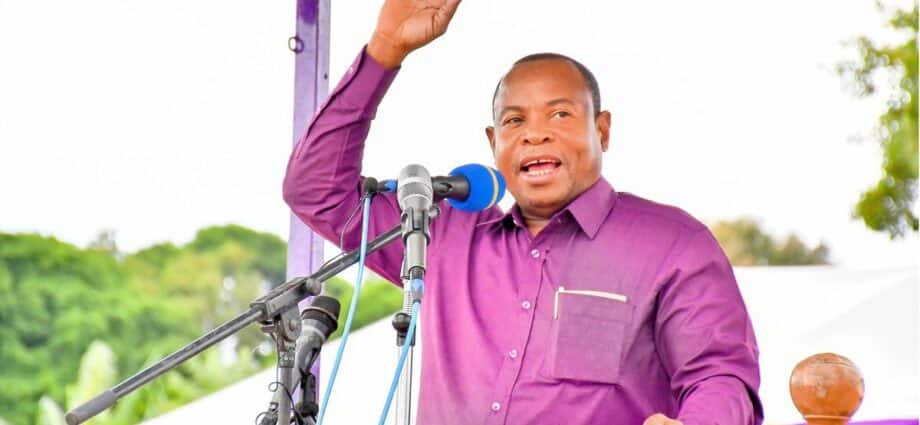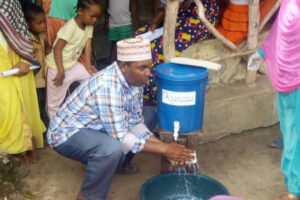
Unguja. Opposition party ACT-Wazalendo’s National Chairperson and First Vice President of Zanzibar, Othman Masoud Othman, has issued a call for Union reforms, urging Zanzibaris to speak out in defence of their rights and the island’s autonomy.
Speaking at the conclusion of his tour across Zanzibar, Othman said that questioning the Union between Zanzibar and Tanganyika should not be treated as treason—but a constitutional right and a patriotic duty.
“It is neither a crime nor a sin for a Zanzibari to question the structure of the Union or to advocate for meaningful reforms within it,” he told party leaders during a closing meeting in Kiembesamaki, Unguja.
He argued that the Union was never endorsed by Zanzibar’s legislative body at the time.
“While the Union was approved by the Parliament of Tanganyika, it never received the blessing of Zanzibar’s then-legislative body—the Revolutionary Council,” he said.
Othman made it clear that his party is not calling for the Union’s dissolution but rather a transformation into a just and equitable partnership that honours the sovereignty and dignity of both sides.
“We want a Union of equals. We want two united countries with equal status,” he said.
“Not the current arrangement, where even a Union minister outside Tanzania carries more diplomatic weight than the President of Zanzibar.”
He lamented what he described as a gradual erosion of Zanzibar’s authority, citing the loss of economic independence and control over key sectors.
“Zanzibar once had its own currency and its own dignity,” Othman said.
“Now, almost every important issue is labelled a Union matter, stripping the islands of their autonomy.”
Othman criticized leaders who, he said, fear discussing the Union, treating it as if it’s a taboo or even a crime.
“There are leaders in this country who, when the topic of the Union is raised, react as if it’s an act of treason,” he said.
“This is about rights and sovereignty—authorities must provide clear explanations to those who seek them.”
He called on ACT-Wazalendo leaders to remain vocal and courageous in their demands for change, noting that many Zanzibaris place their hopes in the party.
“There’s a large population outside this room that looks to us with hope. It is our duty to welcome them and lead the way toward achieving our shared goals,” he added.
Vice Chairperson for Zanzibar, Mr. Ismail Jussa, echoed the sentiment, framing the upcoming October general election as a turning point for Zanzibar’s political future.
“This victory that will see Othman become the President of Zanzibar is not just a win for ACT-Wazalendo—it is a victory for the liberation of Zanzibar,” Jussa said.
“It is about restoring our autonomy, reuniting our people, fighting discrimination, creating jobs, and realizing the dream of Maalim Seif Sharif Hamad to make Zanzibar the Singapore of Africa.”
In a similar tone, Central Committee member Mansour Yusuf Himid stressed the importance of democratic freedom and cautioned against political intimidation.
“Love and freedom cannot be forced. If you have done well, the people see it and will judge you by your actions. Let’s not resort to intimidation,” he said.
The meeting marked the end of Othman’s nationwide tour, which covered 11 regional party branches, 50 electoral constituencies, and more than 678 grassroots leaders.
The tour aimed to strengthen ACT-Wazalendo’s grassroots presence ahead of the general elections and to thank party agents involved in the recent voter registration drive.














